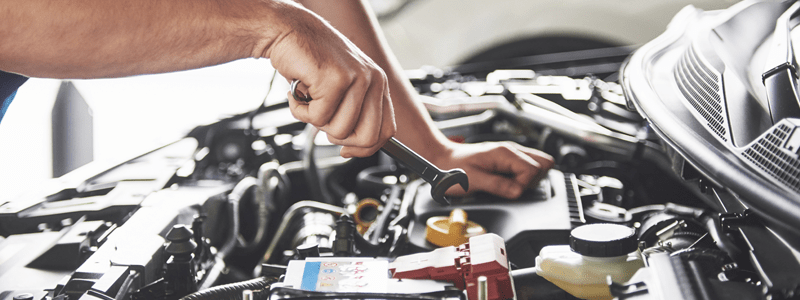So, you’re looking to get finance on a new or used car. While this is the ideal solution for many to get their next car, there are a few things you need to consider first.
While affordability should be at the top of everyone’s list of things to think about, it’s also important to be informed on other potential issues before you take out car finance. That’s why we’ve put together a list of nine car finance problems and how to solve them, so you can feel confident in finding a funding solution to help you get behind the wheel of your next car.
1. Establishing the overall cost
It’s tempting when looking for your next car on finance to get side-tracked with all the options available. However, you must make sure you can afford it come what may: could your circumstances change in the future, and would this affect your ability to pay?
Establish how much you’ll be paying monthly and overall for your car, and make sure it fits your budget. If it doesn’t fit your circumstances or you can’t adjust to the payments, it might be worth looking at other options such as Hire Purchase. Affordability is often the biggest of all car finance problems.
2. Researching your car and finance options
It’s not only your financial circumstances that can impact the car finance you choose. It’s also the kind of car you want and the method of financing.

If you want a car that’s perfect for you, think about the type of car you need and how you plan to use it. Will the car be one you want to own at the end of your finance deal, or might your needs change?
If you’re after a modern, brand-new car, be aware that you may need to borrow more or find a larger deposit if considering a PCP deal. However, with a newer model, you could be looking at lower maintenance and servicing costs.
Would you prefer to get a new car every few years, or is depreciation a concern for you? In that case, maybe leasing could be something to look into.
Make sure you do all your research and look around before settling on the car and the finance option that’s right for you as it could lead to problems later on.
READ: Car finance explained: What is it and how does it work?
3. Finding the best deal
Everyone has different circumstances, and when it comes to getting the best deal on car finance, you could feel bewildered by all the options out there.
Ultimately, it’s down to trust. While it’s more than possible that a new finance broker could offer a good lease deal, turning to one that has more experience or a larger panel of lenders to choose from may lead to a deal that is more suited to you.
Don’t get stuck with a car finance company with restricted lending options – either a small number of lending options or one that doesn’t suit your needs, as applying through the wrong lender can impact your credit score.

So it’s important to pick someone who will look at your individual circumstances and what you want out of the car finance, so they can tailor a solution for you and ensure you get the best deal.
Read: What is a credit broker and what should I look out for when buying a car?
4. New cars versus used cars
New car leasing or financing can be pretty straightforward, although when it comes to leasing, make sure the company has access to a good supply of new vehicles. Be wary if your car dealer or leasing broker seems to be pushing one model too much, as this can often indicate that they have got a job lot from somewhere or need to move less popular stock.
However, when it comes to used or nearly new vehicles, it’s different. You don’t want to get caught with a company that doesn’t have the capacity or the skills to prepare your vehicle properly.
Ideally, your dealer should be able to prepare the vehicles to an excellent standard and be able to handle everything from small hatchbacks with diamond cut alloys to vehicles with the latest hybrid and electric technology. Established franchise dealerships will offer this as well as finance and leasing brokers such as Hippo Motor Finance.
5. Deciding on an initial payment
It’s easy to be enticed by an attractive monthly price, only to find out you have to pay a prohibitive initial payment. Most lease deals allow you to offer 3, 6, or 9 month up front, while others even offer zero deposit options.
6. Don’t feel you need to commit to a hard search
As previously stated, when it comes to car finance agreements, you need a big panel of proven lenders. Still, it’s also important to choose lenders that offer soft search capabilities so that there’s no chance of your credit rating being negatively impacted.
A soft search is not something all brokers can offer, but a broker with your best interests at heart should be able to offer this service so that you don’t need to commit to a hard credit check that will impact your credit rating if you’re declined. Use our car finance eligibility checker to determine whether you’re preapproved for finance – it’s a soft search that won’t impact your credit score.

7. Know your warranty

Does your car come with a warranty? New cars will obviously have the manufacturer’s warranty, but this isn’t the norm for used vehicles. Is the dealer or supplier confident enough in their vehicles to offer a complimentary warranty on the car? If not, consider looking elsewhere, as not having a warranty could cost you further down the line.
8. Potential penalties
Failure to stick to the terms of your agreement ends up being one of the biggest car finance problems towards the end of your deal and could end up costing you. Particularly with PCP or PCH agreements, be sure to know what you’re signing up for.
Excess mileage
While most of us have an idea of how many miles we will do, you never know what will happen – even a change in job location could mean you need more than the agreed number of miles on the contract.
The charges for excess mileage are typically anywhere between 4p and 15p per mile and while this might not sound a lot it can add up.
Damage to the car
While normal wear and tear is acceptable, the better condition you can keep the car in, the less you’ll end up having to pay out in the end.
Servicing
Some contracts will stipulate when and where you need to get the car serviced. If leasing it’s your responsibility to ensure the car is serviced to keep it in warranty.
9. The importance of aftersales care
Aftersales care can make all the difference – what happens when something goes wrong?
It’s better to deal with a company that has a reputation for great support after the car has been handed over.
Online recommendations are a good source of information when considering a car finance company and its aftersales service. They can help you make up your mind about the product, service and how a company performs after the sale. Look for established companies, like Hippo Motor Finance, part of Hippo Motor Group, with solid reviews.
When it comes to checks, you can find how long the company has been trading at Companies House or see if the Financial Conduct Authority regulates them.
If you want to investigate further, you can see if the business is affiliated with any associations, such as the BVRLA, the UK trade body for companies engaged in vehicle rental, leasing and fleet management.
A serious finance and leasing broker that you can trust will listen to your needs, ensuring that all bases are covered about the finance, vehicle, and supply professional solutions.
Don’t get caught out by car finance companies that don’t have your interests at heart; choose Hippo Motor Finance for a car finance experience that you can trust. Use our car finance eligibility checker to determine whether you’re preapproved for car finance.














